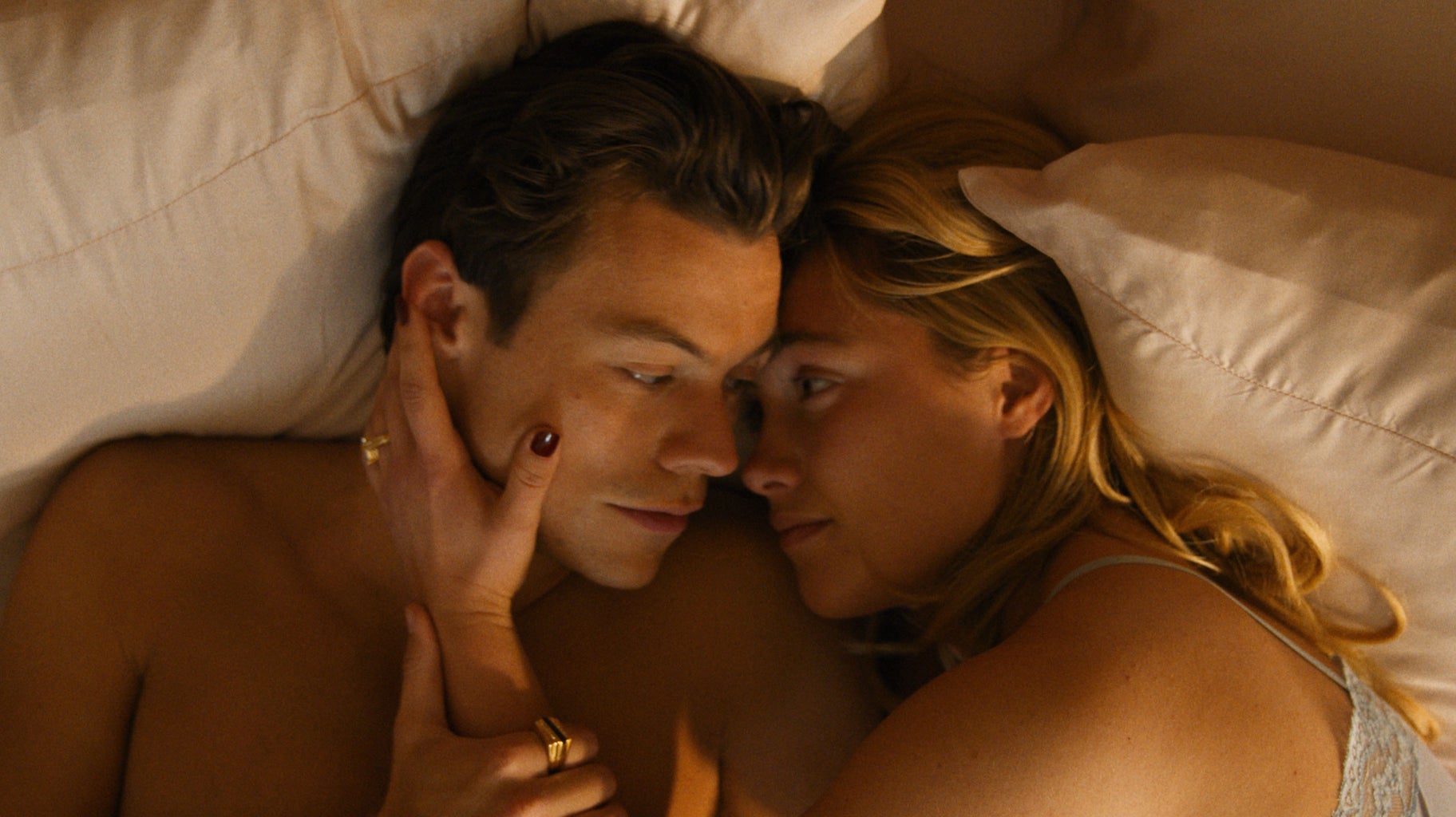If you are unfamiliar with the movie “Don’t Worry Darling”, it follows the main characters Alice and her husband, Jack, in a 1950s-esque community called Victory, where Jack works with the other men in the town on a secretive project. Spoiler alert, Alice is actually in a forced simulation that Jack put her in and she along with the other women in the town are unaware of this until the end of the movie. The movie depicts important modern themes including patriarchal ideals of women, gender roles, and female autonomy. However, the film does a poor job of conveying its central message to the audience through untied plot points and casting choices. 1
While an ambitious attempt for her second directorial venture, Olivia Wilde’s “Don’t Worry Darling” does not pay off in the end. My biggest gripe with the film is its stark similarity to “The Stepford Wives”, originally released in 1975. The movie has a very similar plot to “Don’t Worry Darling”, including the women being perfectly dressed and tending to the every whim of their husbands. This movie was original for its time as it offered artistic depictions of second-wave feminism and boldly went against expectations held for women. However, “Don’t Worry Darling” arguably fails to add any notable dialogue to this conversation. Yes, it shows the destruction of female agency through Alice’s career as a surgeon, however, other films such as, “The Wolf of Wall Street” (2013) and “The Room” (2003), do the same. The only aspect that Wilde’s film adds is the science fiction element, yet this is already done by “The Stepford Wives”.
It is also hard to forget the endless drama surrounding the film leading up to its premiere. For example, a snippet of the movie was released depicting a heated argument between Florence Pugh’s character, Alice, and Harry Styles’ character, Jack, arguing about Alice threatening to jeopardize the life they constructed in Victory town.
“Not everyone gets this opportunity. And if you keep talking like this, you’re gonna put it all at risk,” Jack said.
Harry Styles was ridiculed on social media platforms like TikTok and Instagram for his strange accent and many emphasized the importance of casting well-credited actors in acting roles. This only brought bad press to the movie, but even worse, it was later revealed to be a meaningless plot point. This is a perfect example of the film’s attempt to create a full picture of the ideals that it comments on, however, this demonstrates how a different actor would have been better suited for Jack. While Styles brings star power to the role, an actor who could portray more nuance in the character and also be balanced with Pugh, would have been a wiser decision.
However, I must admit that I was very excited to see “Don’t Worry Darling” in theatres because I am a die-hard Harry Styles fan and Florence Pugh is one of my favorite actresses. I also appreciate the stylistic choices made in the film. For example, a few notable choices include the hidden image of Alice’s eyes in the curtain, lighting changes that represent the mood of the scene, and the cinematography. However, I could not look past the directorial choices made by Olivia Wilde. Many meticulous details lay the groundwork in the film for an ending that never fully pays off. From the lack of yolk in the eggs to the simulated children, the ending only provides shock value to audiences and lacks any substance for audiences to consider and discuss. Another notable point in the movie includes the shocking ending for the leader of the community, Chris Pine’s character Frank. Without spoiling the ending, Wilde fails to explain who was behind the simulation or the manipulation of the women in the simulation.
From the unsatisfying ending to the loose plot points, Wilde allows for more questions than answers in her latest film. If you want to see Harry Styles and Florence Pugh in action, it’s worth a shot. However, if watching a movie that speaks about issues facing women in an idyllic-seeming society is appealing, “The Stepford Wives” is a must-watch.



